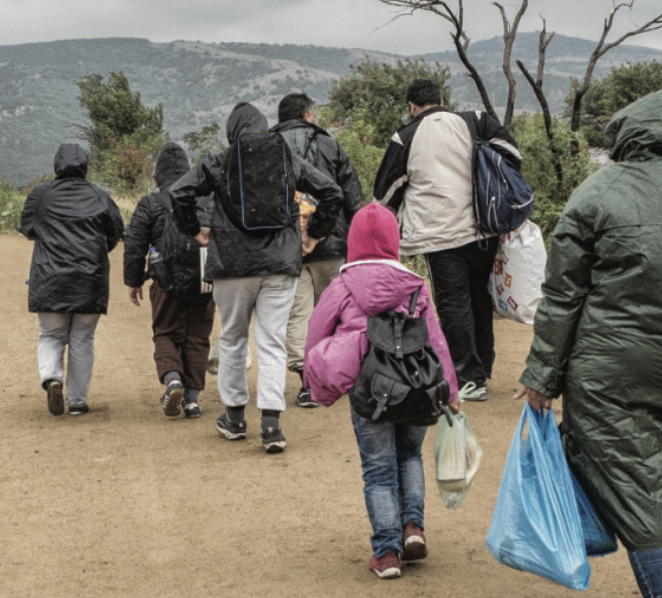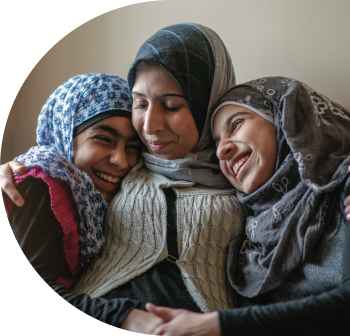
Using Household Surveys to Develop Linkages Between Gender and Governance, Peace and Security
Political violence and conflict weaken government institutions. In particular, national statistical systems can lose capacity for regular and timely data collection. As a result, governments and humanitarian actors lack insights on how conflict or instability impact the livelihoods and physical safety of women and girls. Without such data, governments and humanitarian actors cannot make policies that address the needs of women and girls.
Governments and humanitarian actors lack insights on how conflict or instability impact the livelihoods and physical safety of women and girls.
Highlighting The Solutions
Integrating governance and peace and security modules into household surveys
As part of the “Strategy for the Harmonization of Statistics in Africa,“ the African Union developed governance, peace, and security modules that can easily be integrated in household surveys. These modules ask household members for their knowledge and perception of democracy, human rights, governance, and conflict. As of 2015, countries such as Cabo Verde, Côte d’Ivoire, Cameroon, Malawi, Burundi, and Senegal had integrated or begun integrating survey modules into their household surveys. Côte d’Ivoire’s integration of the module demonstrates the possibility of conducting gender-relevant data analysis using household surveys that already collect basic information, such as age and sex of household members.
Other human security solutions and findings
Of the 142 solutions found in the inventory, there are 13 solutions relevant to human security, of which, seven solutions solely focus on human security and the remaining six solutions cover multiple themes. Governance, peace, and security modules to further understand the perception of women, girls, men, and boys are examples of many human security-related solutions found in the inventory. Other human security solutions in the inventory include:
- Using data from civil society organizations to understand how women are affected by political violence
- Using data from academia to understand the role of women in peace processes
- Using IOM’s Gender and Migration Data Guide to collect and disseminate gender responsive migration data
What Will It Take to Scale Up Human Security Solutions?
Technical assistance is key.
When it comes to the integration of governance, peace, and security modules into existing household surveys, inter-governmental organizations are especially essential in providing technical assistance and guidance to national statistical offices. Data literacy is important for solutions that are specifically focused on data use, such as accessing data from civil society organizations and academia to understand how women are impacted by political solutions and to understand the role of women in peace processes. The political will to collect gender data on governance, peace, and security is another necessary ingredient, one that will vary depending on a country’s context and how committed to transparency and equality decision makers are.

How Will Applying These Solutions Impact Gender Data?
The solutions associated with human security would help fill gender data gaps on political violence, and on governance, peace, and security.
The solutions in the inventory address Targets 5.5 (women’s participation in decision-making), 8.7 (human trafficking), 10.7 (safe migration), 16.1 (violence and deaths), 16.3 (rule of law), 16.5 (reducing corruption and bribery), 16.6 (transparent and accountable institutions).
Beyond the SDGs, human security is encapsulated in the fourth aspiration of African Union Commission’s Agenda 2063, a peaceful and secure Africa, consisting of “an entrenched and flourishing culture of human rights, democracy, gender equality, inclusion and peace; prosperity, security and safety for all citizens; and mechanisms to promote and defend the continent’s collective security and interests” (Africa Union Commission 2015).
To access a full list of sources for the above, click here. To view the entire report, follow this link.
Close Gender Data Gaps
Explore more solutions that are practical and scalable across six development sectors.

